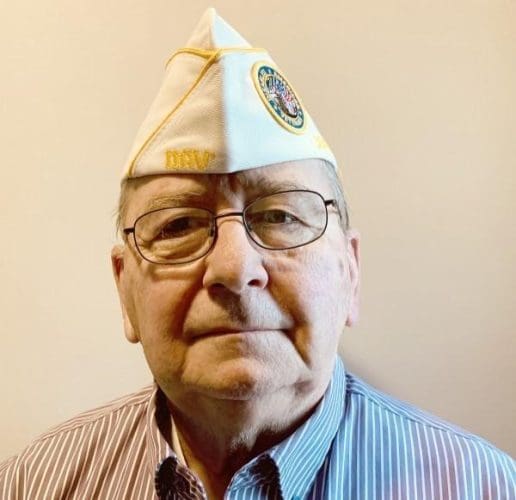
State of Ohio House Bill 69 was introduced into the 135th General Assembly on February 23, 2023. The short title of this bill is: Revise Membership of County Veteran Service Commissions.
Currently, the County Veterans Service Commissions (CVSC) of eighty-eight (88) counties in Ohio must be composed of five (5) residents of the county, who are honorably discharged or honorably separated veterans. The veterans appointed to the Commissions are appointed by the County Judge of the Common Pleas Court.
The legislative bill makes two (2) significant changes to the existing statute. The first change is composition of the veterans’ service commission. The second change refers to the appointing authority of the commission.
In terms of the composition of the veterans’ service commission, effective in 2024, two (2) members must have served in the military after September 11, 2001. In terms of the appointing authority, with the proposed change in place, one member of the veterans’ service commission must be appointed by the Board of County Commissioners.
My Opinion: To most people, these two (2) modifications seem insignificant and slight. However, to most World War II veterans, Korean War veterans, Vietnam veterans, and all veterans who served before September 11, 2001, this is an act of pure discrimination. I tend to agree with them.
In researching this proposed legislation, I reviewed the August 2013 Report, issued by PCG, for the Ohio Department of Veterans Services (ODVS), concerning a “Review of Veteran Services.”
In reviewing the Appointing Authorities of military members of various state veteran service commissions, the comprehensive and detailed 2013 Report makes the following comments concerning the State of Ohio:
“In Ohio veterans commissioners are appointed by the county judge so these commissioners and their appointees can only be removed under the authority of the judge. This provides an important judicial check to the county executive’s influence on the financial and personal decisions of CVSO’s.”
The County Veteran Service Commission structure was established to provide financial and other services to veterans residing within their jurisdiction. They were designed to be politically impartial. The 2013 Report correctly infers that allowing the Board of County Commissioners to make an appointment infringes on the political impartiality of the process.
The proposed legislation mandates that forty (40%) percent of the composition of a County Veterans Service Commission must have served in the military after September 11, 2001.
According to 2022 Census statistics, there are 12,816 veterans in Clermont County or over eight (8.1%) percent of the County Population. Only 2,448 veterans or nineteen (19.1%) percent served after September 11, 2001.
In Brown County, there are 3,138 veterans or just over nine (9.3%) of the total County Population. Only 308 veterans or nine (9.3%) percent served after September 11, 2001.
Statistics appear to prove that a disproportionate number of veterans who served after September 11, 2001, would be required to occupy forty (40%) percent of the commission positions.
Currently veterans, who served after September 11, 2001, are already eligible to serve as members of a veteran service commission. These veterans, who served after September 11, 2001, are already members of the American Legion, AmVets, Disabled American Veterans, Military Order of the Purple Hearts and the Veterans of Foreign Wars. So, I question, why do we really need this proposed legislation?
Let me briefly address the topic of discrimination. Many Korean War and Vietnam veterans did not have an opportunity to serve in the military after September 11, 2001, because of their advanced ages. That is a given fact!
When these veterans returned home from their overseas deployments, they were discriminated and ostracized by the general population —and even by other existing veteran organizations.
For example, Korean War veterans were often told, “It wasn’t a War, it was only a “conflict.” Vietnam veterans were often told “Don’t wear your uniform when you are going to the airport” or “They lost the War” and were shunned from some veteran organizations.
Now as they approach the twilights of their lives, this proposed bill (if enacted into Ohio law) will automatically exclude Korean War and the Vietnam War veterans from consideration of two (2) of the five (5) positions on the County Veterans Service Commissions.
To me, this age discrimination (by slight-of-hand maneuvering in legislative halls) is still blatant discrimination.
All veterans should be treated equally without one generation of veterans being superior over another generation of veterans. As veterans, we all took the same oath to serve our country and many continue to serve on Country Veterans Service Commissions.
Ohio House Bill #69 is not a good Bill. It is not a good Bill for Veterans. And more importantly, it is not a good Bill for the State of Ohio.
BioSketch: John Plahovinsak is a 32-year retired Army Veteran, who served from 1967 to 1999. He is the current Disabled American Veterans (DAV) Department of Ohio Hospital Chairman and a member of the American Legion, Korean War Veterans Association, Vietnam Veterans of America and Veterans of Foreign Wars.
He can be contacted at: plahovinsak@msn.com.







